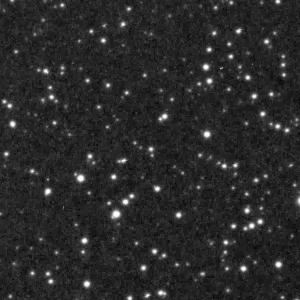IPs
V455 And
V515 And
AE Aqr
FO Aqr
V349 Aqr
XY Ari
V405 Aur
V647 Aur
HT Cam
MU Cam
DW Cnc
BG CMi
V709 Cas
V1033 Cas
V1025 Cen
TV Col
TX Col
UU Col
V2069 Cyg
V2306 Cyg
DO Dra
PQ Gem
V418 Gem
DQ Her
V1323 Her
V1460 Her
V1674 Her
EX Hya
NY Lup
V2400 Oph
V2731 Oph
V3037 Oph
V598 Peg
GK Per
AO Psc
HZ Pup
V667 Pup
WX Pyx
V1223 Sgr
V4743 Sgr
CC Scl
V1062 Tau
EI UMa
AX J1740.1
AX J1832.3
AX J1853.3
CTCV J2056
CXO J174954
IGR J04571
IGR J08390
IGR J15094
IGR J16500
IGR J16547
IGR J17014
IGR J17195
IGR J18151
IGR J18173
IGR J18308
IGR J19267
LAMOST 0240
PBC J0927.8
PBC J1841.1
RX J1804
RX J2015
RX J2113
RX J2133
RX J2306
Swift J0717
Swift J1839
Swift J2006
Swift J2138
|
V647 Aurigae = 1RXS J063631.9+353537
Links to this object in
VSX
and in
Swift BAT 157 month survey

SkyView image
of V647 Aur (see important notes).
- Position
-
- Equatorial: 06h36m32.56s,
+35d35m43.2s (Gaia)
- Galactic: l= 179.19, b=+12.62
- Finding Chart:
- Gaensicke et al. (2005)
- Brigntness:
- Optical: G=16.0 (Gaia); X-rays: 1.3x10-11 ergs cm-2s-1 (BAT 157m; 14-195 keV), 8.0x10-12 ergs cm-2s-1 (4XMM-DR11)
- IP Credential:
- **** (Confirmed): The coherence and the persistence of multiple optical
periods have been demonstrated, and apparent inconsistency with previous
results can be explained. The Pdot appears to be large, though, and the
orbital period is only indirectly known.
- Periods:
-
- Orbital: 0.144402 d = 3.46565 h = 12476.3 s, infered from spacing of
sidebands in optical photometry.
- Spin: 0.0107976 d = 15.548538 m = 932.9123 s from optical photometry
and (probably) in the X-ras
HJD = 2455977.79905(9) + 0.010797596(13)E
(Kozhevnikov (2014)) for the
spin maxima.
- Others: 0.00116702 d = 16.8051 m = 1008.3080 s, the dominant period
in optical photometry, is identified with the first (\omega-\Omega) beat.
HJD = 2455977.797720(40) + 0.0116702311(44)E
(Kozhevnikov (2014)) for the
maxima.
Also seen is the second (\omega-2\Omega) beat period at 1096.955(4) s.
- Inclination:
- ?
- Distance:
- 1960 (1790-2150) pc (Gaia EDR3; parallax: 0.481+/-0.045 mas)
References
- Gaensicke et al. 2005 (optical identification, photometry & spectroscopy)
- Bernardini et al. 2012 (X-rays)
- Kozhevnikov 2014 (optical photometry)
- Barrett et al. 2017 (radio)
- Suleimanov, Doroshenko & Werner 2019 (X-ray spectroscopy)
- Suleimanov, Doroshenko & Werner 2022 (hard X-ray luminosity function)
- Mukai & Pretorius 2023 (Absolute magnitudes and X-ray luminosities)
Laast updated 2026 January 23
Please send your comments, suggestions etc. to
Koji.Mukai@nasa.gov
and/or
Koji.Mukai@umbc.edu
|



